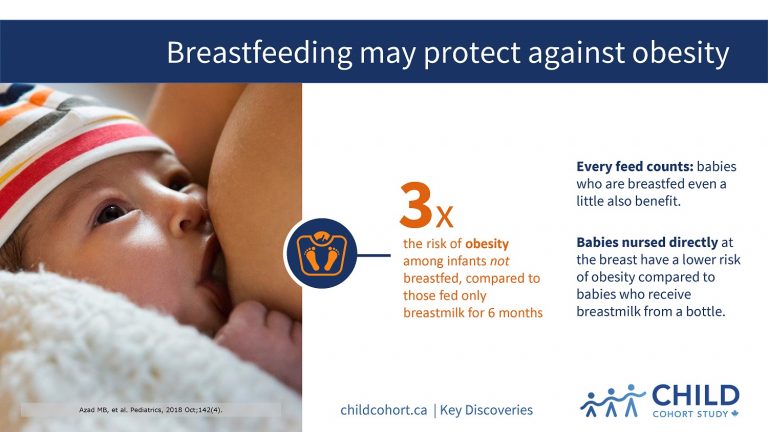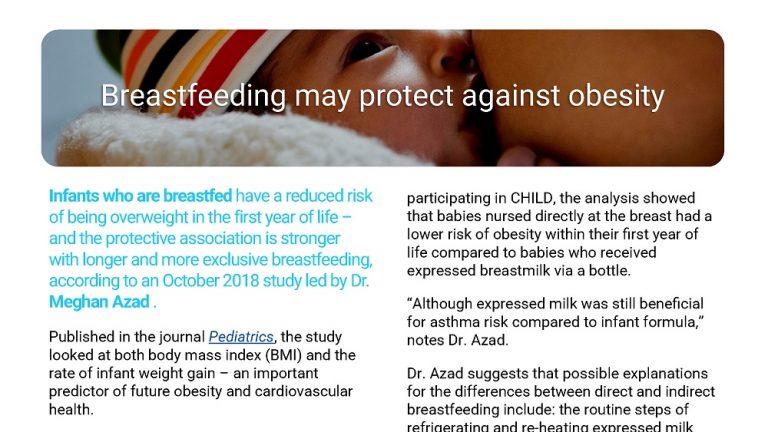Breastfeeding may protect against obesity
Infants who are breastfed have a reduced risk of being overweight in the first year of life – and the protective association is stronger with longer and more exclusive breastfeeding, according to an October 2018 study led by Dr. Meghan Azad.
Published in the journal Pediatrics, the study looked at both body mass index (BMI) and the rate of infant weight gain – an important predictor of future obesity and cardiovascular health.
EVEN PARTIAL BREASTFEEDING IS BENEFICIAL
“We found that the risk of overweight at 12 months of age was over three times higher among infants who were not breastfed (8.3% overweight) compared with infants who were exclusively breastfed (2.4% overweight) for the first six months of life,” says Dr. Azad.
“It’s important to note that in our study, the protective effects of breastfeeding were ‘dose dependent,’ meaning that babies who were partially breastfed also received some benefit, so ‘every feed counts.’”
The study also found that the method of feeding breastmilk matters. Using data collected from more than 2,500 infants and mothers participating in CHILD, the analysis showed that babies nursed directly at the breast had a lower risk of obesity within their first year of life compared to babies who received expressed breastmilk via a bottle.
“Although expressed milk was still beneficial for asthma risk compared to infant formula,” notes Dr. Azad.
Dr. Azad suggests that possible explanations for the differences between direct and indirect breastfeeding include: the routine steps of refrigerating and re-heating expressed milk may degrade the bioactive components of breastmilk; or infants who are fed at the breast may have better self-regulation of milk intake.
Image from the CHILD Cohort Study breastfeeding video
The findings made headlines and were picked up by international media outlets including People, CNN, Global News, CBS News, the Boston Globe, and the Chicago Tribune.
“Our hope is that this research will help to inform and optimize infant feeding guidelines, and continue to promote programs and policies that support direct breastfeeding, such as paid maternity leave,” says Dr. Azad. “Together, these measures could have a meaningful impact on preventing childhood obesity.”
Read the commentary about the study in Pediatrics.






